Incorporating GDMT and PRO Endpoints for Personalised Heart Failure Management
Published: 23 March 2023
-
Views:
 3782
3782
-
Likes:
 7
7
-
Views:
 3782
3782
-
Likes:
 7
7
-
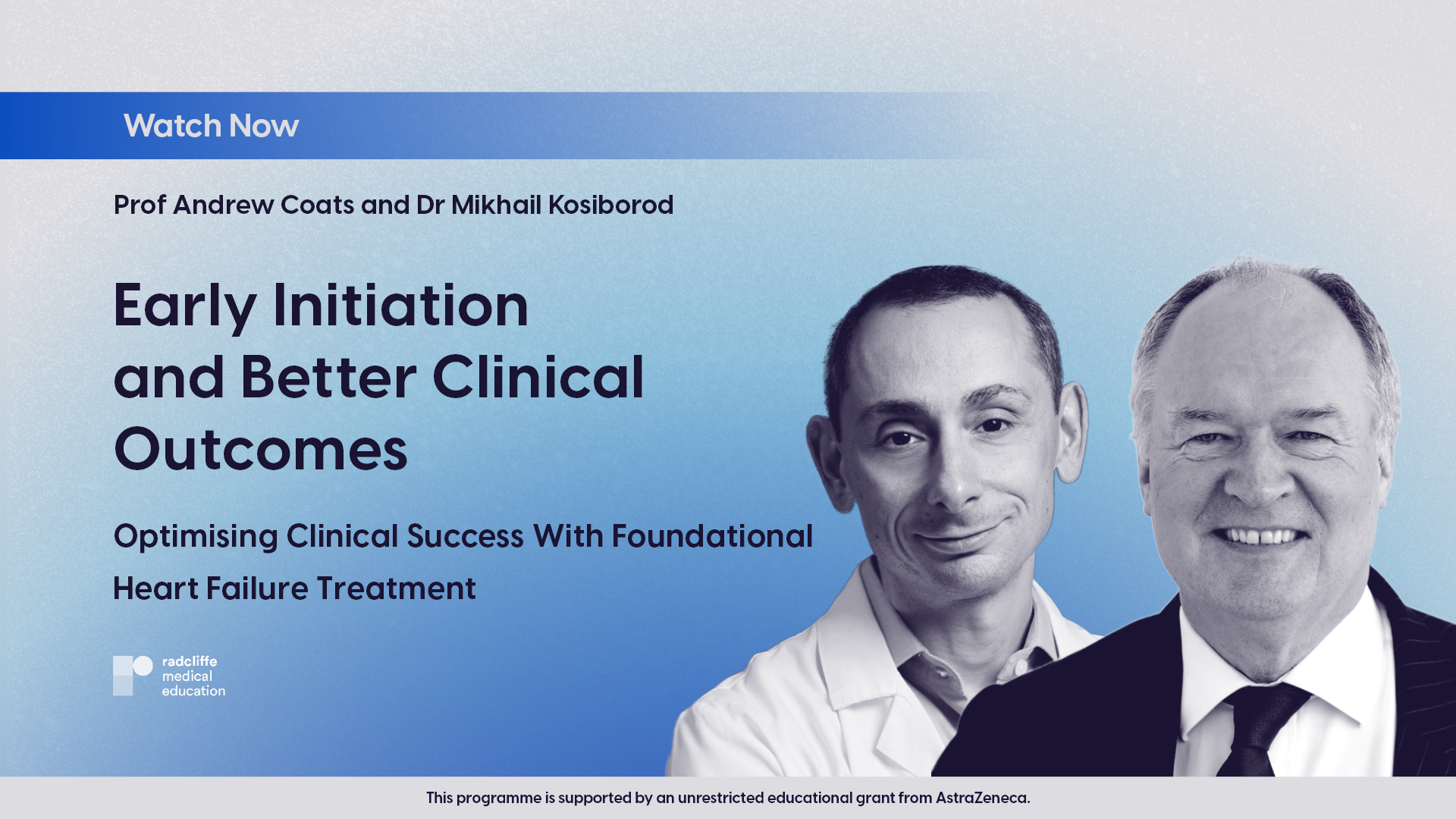 Up Next
Up Next -
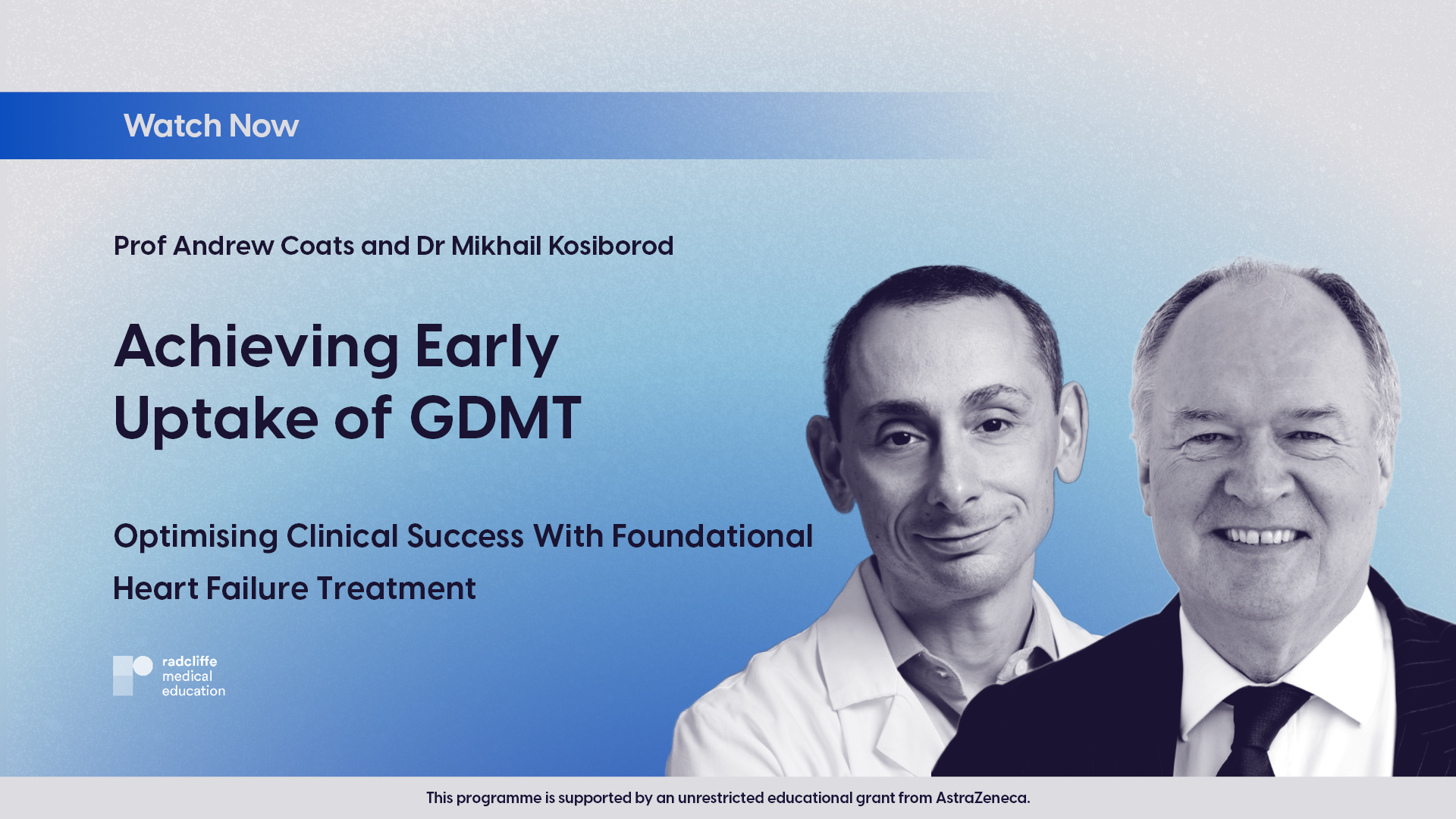 4m 59sPart 1 | Session 3 Achieving Early Uptake of GDMT
4m 59sPart 1 | Session 3 Achieving Early Uptake of GDMT
-
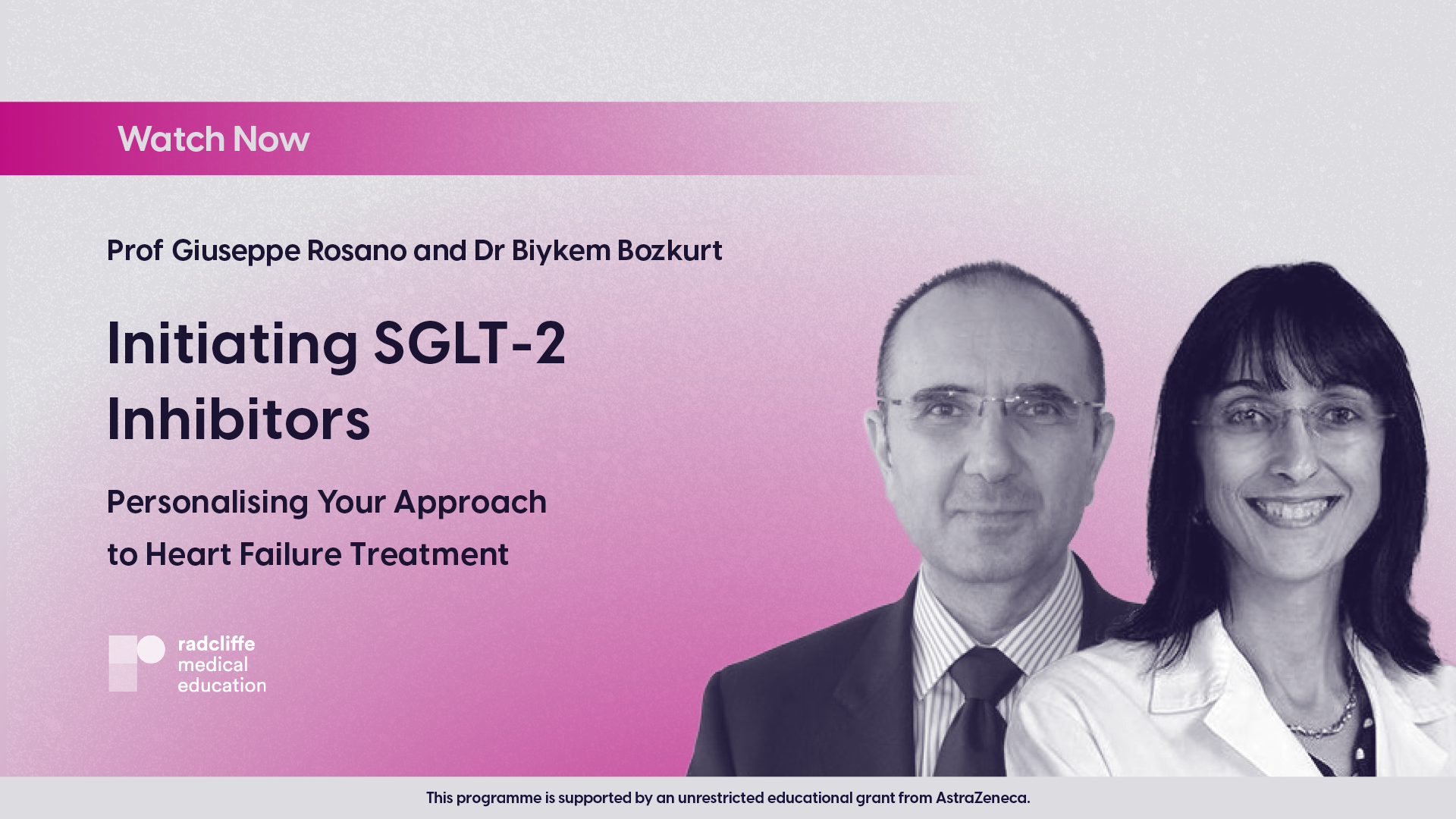 6m 24sPart 2 | Session 1 Initiating SGLT-2 Inhibitors
6m 24sPart 2 | Session 1 Initiating SGLT-2 Inhibitors -
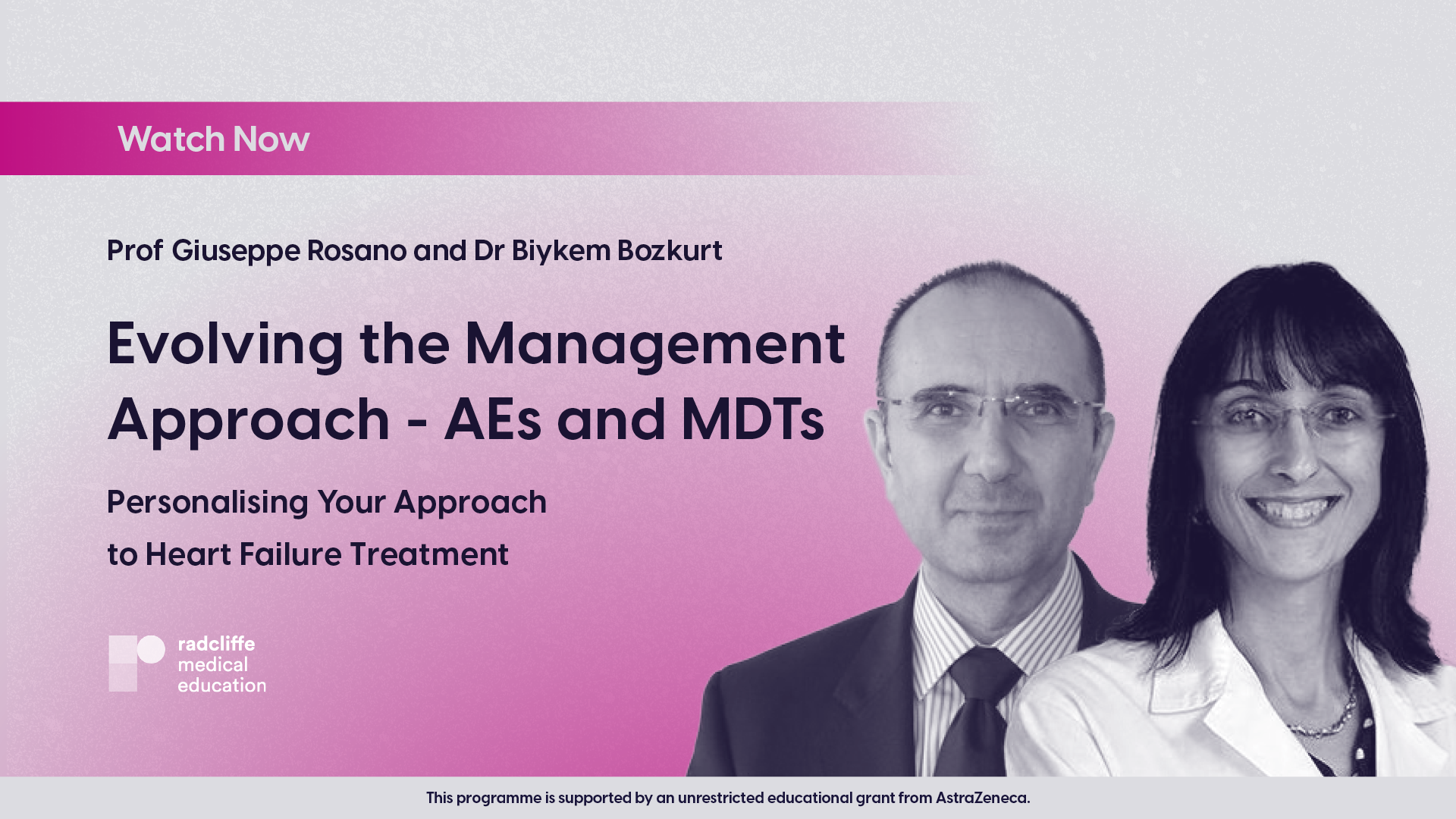 6m 49sPart 2 | Session 2 Evolving the Management Approach - AEs and MDTs
6m 49sPart 2 | Session 2 Evolving the Management Approach - AEs and MDTs
-
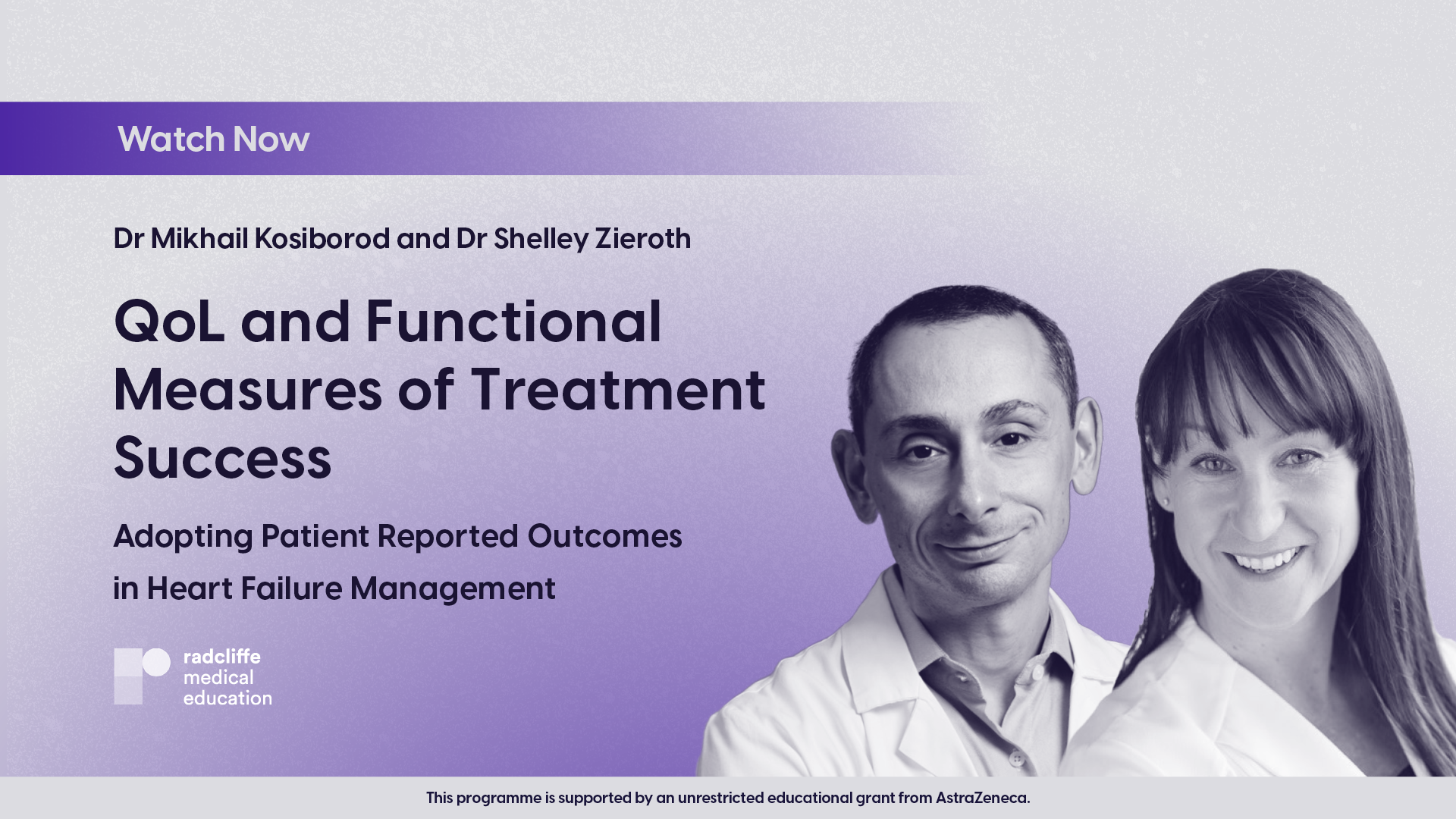 6m 23sPart 3 | Session 1 QoL and Functional Measures of Treatment Success
6m 23sPart 3 | Session 1 QoL and Functional Measures of Treatment Success -
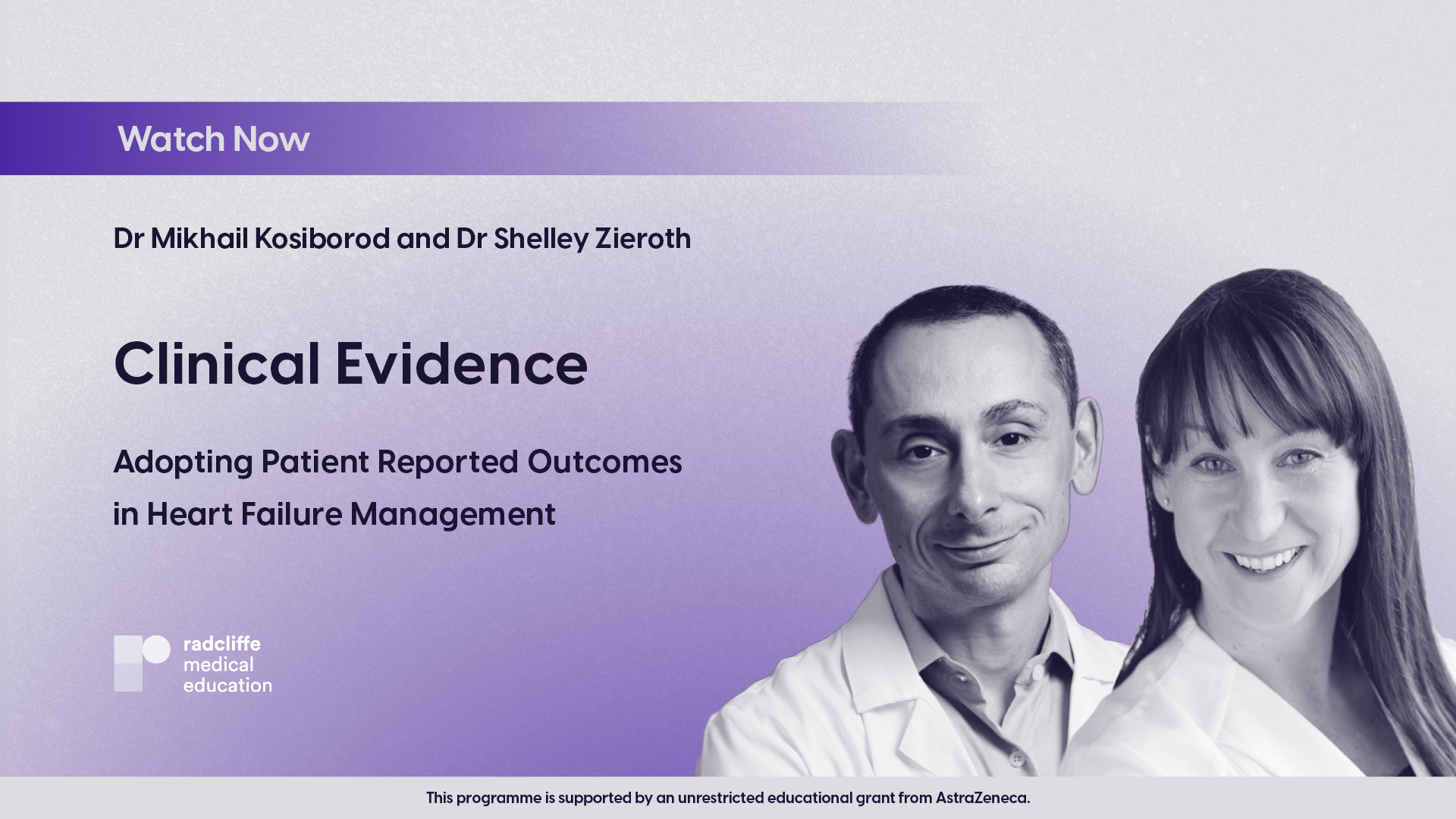 7m 18sPart 3 | Session 2 Clinical Evidence
7m 18sPart 3 | Session 2 Clinical Evidence -
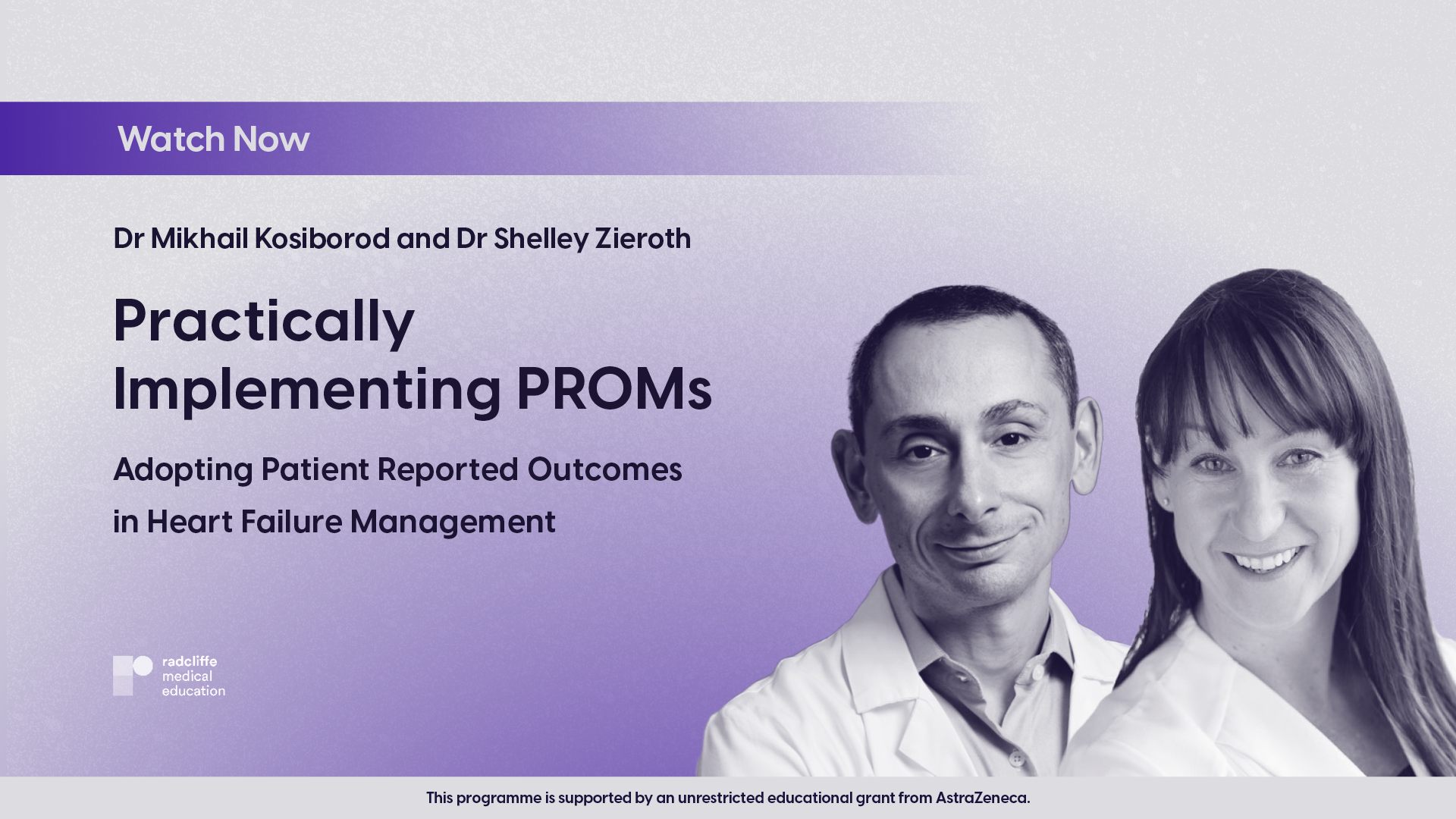 5m 25sPart 3 | Session 3 Practically Implementing PROMs
5m 25sPart 3 | Session 3 Practically Implementing PROMs
-
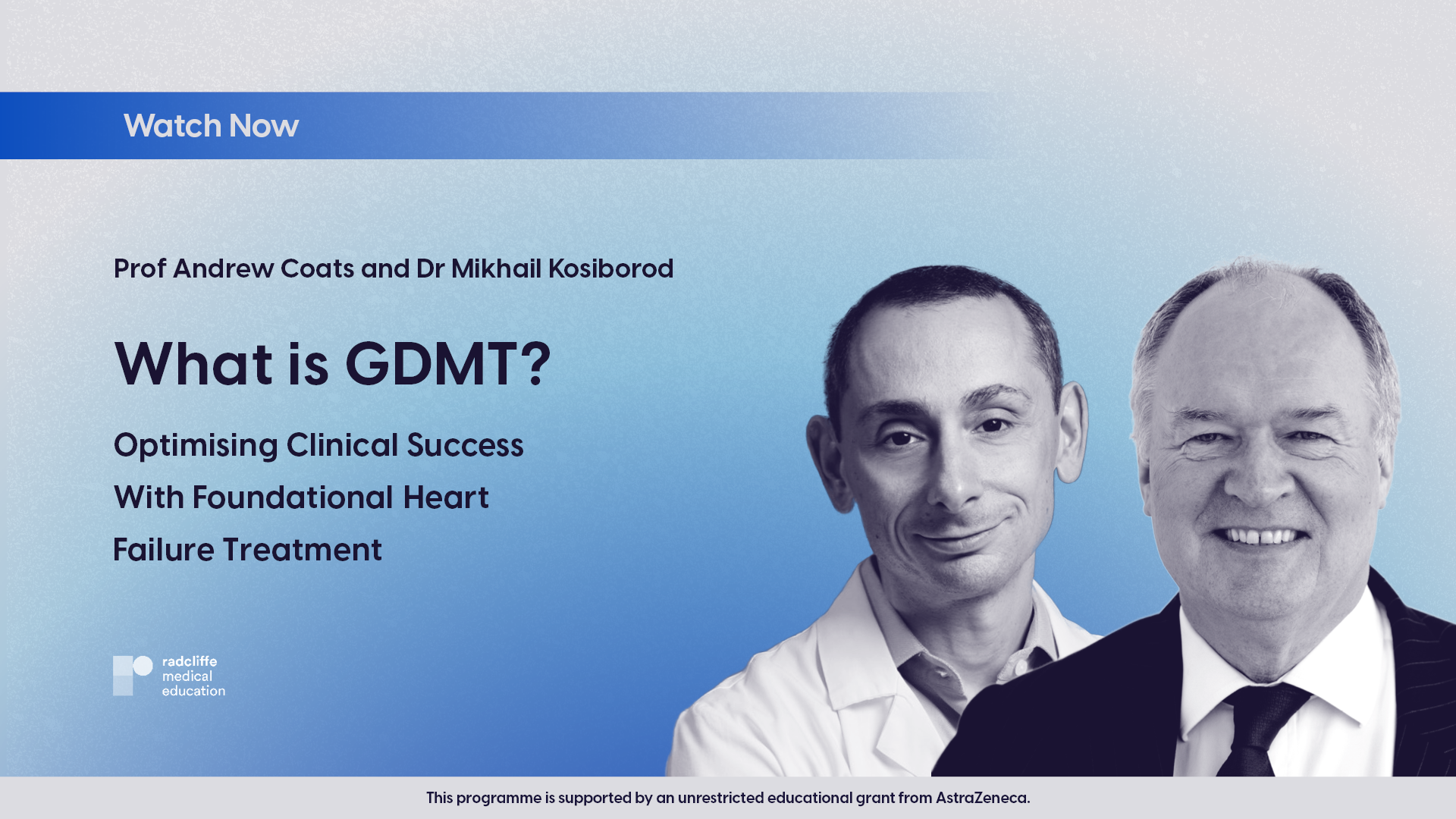 6m 1sPart 1 | Session 1 What is GDMT? Andrew JS Coats, Mikhail Kosiborod, Biykem Bozkurt, Giuseppe Rosano, Shelley Zieroth
6m 1sPart 1 | Session 1 What is GDMT? Andrew JS Coats, Mikhail Kosiborod, Biykem Bozkurt, Giuseppe Rosano, Shelley Zieroth
Overview
This series of peer-to-peer discussions examines the practicalities of personalising heart failure management in the context of recent changes to international clinical practice guidelines.
At this exciting juncture, we now have two SGLT-2 inhibitors that offer clinical benefit across the spectrum of ejection fraction, and an increasing body of real-world and registry-based data showing the clear benefit of early guideline directed medical therapy (GDMT) adoption. Further, there is a clear move towards the use of patient reported outcomes (PROs) in addition to clinical endpoints. But how can we start to incorporate these changes in current practice?
In this series, our specially selected faculty of experts consider how we can be using these recent developments to personalise our management approach to heart failure and why it matters for better long-term patient outcomes.
Key Learning Objectives
- Review current GDMT in HFrEF and HFpEF
- Describe the relationship between initiation of GDMT and HF outcomes
- Prescribe GDMT according to current international recommendations
- Recall the elements of the Kansas City Cardiomyopathy Questionnaire
- Describe the clinical studies that support the use of functional and QoL measures in practice
- Initiate QoL and functional improvement measures in routine practice
- Initiate SGLT-2 inhibitors in patients presenting with De novo HF and in patients already on other GDMT
- Adopt shared decision making with HF patients
Target Audience
- Cardiologists
- Heart Failure Specialists
- Primary Care Physicians
- Nurses
- Pharmacists
- Other allied HCPs
More from this programme
Part 1
Optimising Clinical Success With Foundational Heart Failure Treatment
Prof Coats (Heart Research Institute, Sydney, AU) and Dr Kosiborod (Saint Luke’s Mid America Heart Institute, Kansas City, US) start by summarising current foundational heart failure therapy and how guidance has recently changed across the spectrum of ejection fraction. Following this, they explore recent evidence supporting initiation of GDMT and offer practical advice for the implementation of treatment, including possible solutions to the early uptake of GDMT.
Part 2
Personalising Your Approach to Heart Failure Treatment
Prof Rosano (St George’s University Hospital, University of London, UK) and Dr Bozkurt (Baylor College of Medicine, Texas, US) begin by discussing how one should be initiating SGLT-2 inhibitors across the continuum of ejection fraction and across patients who are treatment naïve versus those already on existing HF medications. Referring to the recent clinical practice guidelines, Dr Bozkurt advocates the early initiation of SGLT-2 inhibitors and goes on to provide practical advice on the monitoring and continual use of these agents for better long-term outcomes.
Part 3
Adopting Patient Reported Outcomes in Heart Failure Management
Dr Kosiborod (Saint Luke’s Mid America Heart Institute, US) and Dr Zieroth (St Boniface Hospital, Winnipeg, CA) discuss the adoption of PROs in clinical management of patients with HF. They start by discussing quality of life (QoL) measures and close by looking at practical implementation of tools, such as the Kansas City Cardiomyopathy Questionnaire (KCCQ), in clinical practice and HF management.
Faculty Biographies
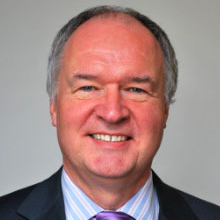
Andrew JS Coats
Professor of Cardiology and Scientific Director
Prof Coats is Editor-in-Chief of the Cardiac Failure Review journal. He has published over 20 patents, more than 750 full research papers and more than 120,000 career citations and has a personal H-index of 146. Andrew was elected to the Presidential Trio of the Heart Failure Association of the ESC in 2018 and will serve as its president from 2020-2022.
Prof Coats is the Immediate past-President of the Heart Failure Association and past-Professor of Cardiology at the University of Warwick, UK. He has also held posts as Head of Cardiology at Imperial College, London and Associate Medical Director and Director of Cardiology at the Royal Brompton and Harefield Hospitals, London. From 2012 to 2017 he was Director of the Monash-Warwick Alliance, and before that served as Deputy Vice-Chancellor and Dean of Medicine at the University of Sydney.
He is an…

Mikhail Kosiborod
Cardiologist
Dr Mikhail Kosiborod is a cardiologist, the Vice President of Research at Saint Luke's Health System, and Professor of Medicine at the University of Missouri-Kansas City, US.
He is also Director of Cardiometabolic Research and Co-Director of the Saint Luke’s Michael & Marlys Haverty Cardiometabolic Center of Excellence at Saint Luke's Mid America Heart Institute. Dr Kosiborod is an internationally-recognised expert in the fields of diabetes and cardiovascular disease, cardiometabolic and cardiorenal syndromes.
Dr Kosiborod is involved in the leadership of numerous clinical trials and multi-center registries, and is currently the principal investigator of several investigator-initiated, multi-center trials in diabetes and cardiovascular disease.





